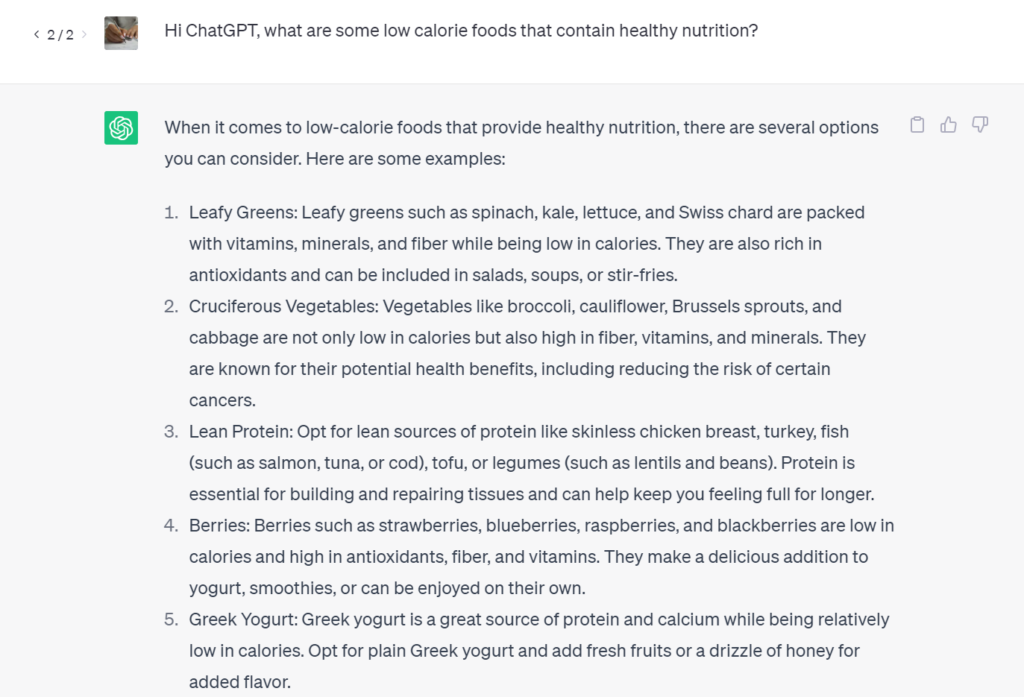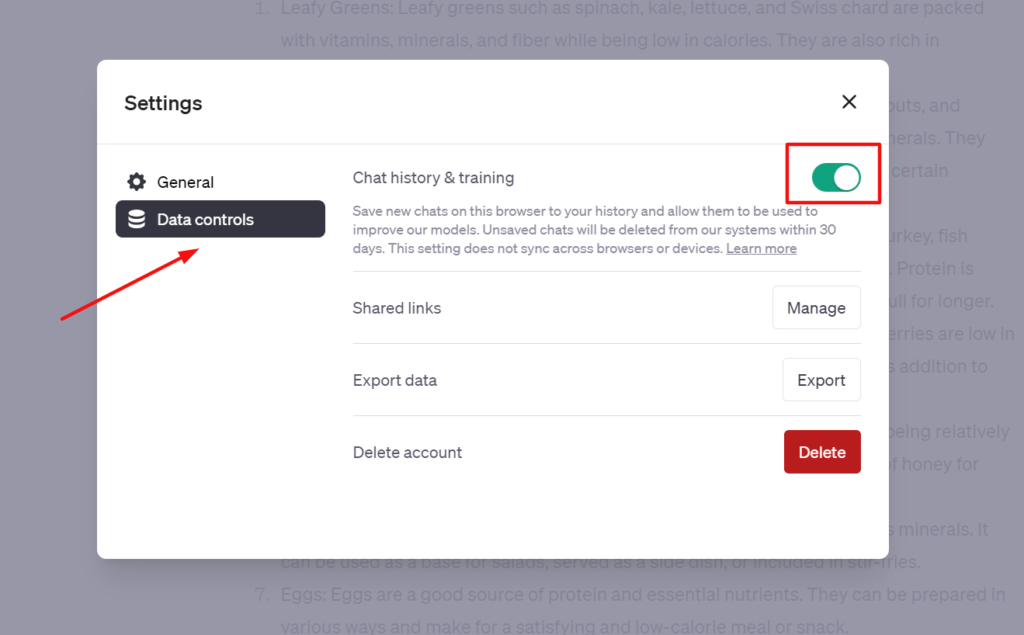Does ChatGPT Track Your Browsing History? [Stay Protected!]
Privacy amongst many other issues is easily one of the biggest concerns of most internet users. And with the explosion of AI so far, it is only natural to be curious as to how safe our data is with these AI bots. And of course, when it comes to privacy concerns, the first point of call is our browsing history. So, does ChatGPT track your browsing history?
The answer as you may already suspect is Yes. ChatGPT saves your chat history and data. If you can be a tad bit paranoid like me, that news can be slightly worrying. However, OpenAI has made it very clear about their data collection practices and thorough steps to ensure user privacy, meaning for now, we have nothing to fear.
It includes the prompts entered into the chatbot and all of its responses. You can access this data from within the ChatGPT homepage or delete your account whenever you like. Plus, there are various measures in place that you can use to conceal your data and keep it all safe and secure!
That said, we’ve gone several steps further to provide you with more information, so let’s dive in!
Does ChatGPT Track Your Browsing History?
ChatGPT is an AI-driven online chat platform, and many users worry about the privacy and security of the data transmitted through it.
As it turns out, ChatGPT tracks your browsing history, according to OpenAI’s comprehensive FAQs. Any conversations lasting longer than 10 minutes are used to train the AI, so it’s always wise to refrain from entering any sensitive information while using the bot.
OpenAI has admitted that although they are transparent about the data they collect, the platform cannot delete any prompts from your browsing history. This includes your email address, IP address, and any prompts or outputs you enter and receive within the platform.
However, OpenAI does not have access to your emails, messages, files, documents, search history, home addresses, calendars, or photos.

It is important to note that OpenAI does log other personal information including your name, contact info, geolocation data, network activity, payment details, file uploads, communications, transaction history, and communications you’ve had with OpenAI on any platform.
Bottom line, when using ChatGPT, stay aware of the data you are providing. Be conscious of what you communicate through the platform and refrain from inputting any sensitive or private information.
OpenAI also saves other personal data aside from your email address, IP address, and the prompts and outputs. This includes your name, contact info, geolocation data, network activity, payment details, file uploads, direct communications between you and OpenAI, transaction history, and more.
All this information is private and gathered exclusively to understand what the platform can do to improve its services better. However, OpenAI won’t share or sell any of this data with third-party firms or other entities.
Why Does ChatGPT Track Your Browsing History?
ChatGPT tracks your browsing history to improve the accuracy and relevance of its recommendations. By understanding your browsing history, ChatGPT can better understand the type of content you are interested in and better tailor its recommendations to you.
This way, you can get more meaningful and personalized responses. ChatGPT also utilizes artificial intelligence to gain more comprehensive insights about browsing habits and activities.
All this data is used to create a larger understanding of a user’s browsing habits and create more targeted personal recommendations. These recommendations can include topics, articles, videos, and more. Additionally, ChatGPT can suggest websites, products, blogs, audio, and other resources that may interest you.

Additionally, tracking your browsing history can be used to improve the accuracy of natural language processing, as it takes the context of the conversations into account when making automated responses.
Based on the conversations it stores, ChatGPT can help create a more natural conversation flow, as it can recognize how a conversation is progressing and generate appropriate responses.
This technology can be used for providing better customer service on chatbots or creating more engaging conversational experiences for users.
How Long Does ChatGPT Save History?
ChatGPT’s memory feature allows it to store conversations for long periods. It can maintain and store conversations up to a year back, giving you the ability to review and analyze customer interactions over a long period.
Furthermore, this history can be managed from the software interface, allowing you to delete, or review data as needed.
Can You Use ChatGPT Privately?
As digital privacy becomes more important than ever, OpenAI is taking steps to ensure that users can have confidential conversations through the ChatGPT platform. Recently they introduced an updated privacy setting that allowed users to disable their chat history.
This came at an opportune time, given a security breach that had exposed the sensitive data of users.
OpenAI also improved the Data Controls section by adding an export option, allowing users to back up their data. Both the disabling function and the exporting are available to both free and paying users.

Unsaved chats are retained for 30 days and will be reviewed by OpenAI members to detect any abuse. After the 30-day window, these chats are deleted from the system.
While this offers greater control to users, it also means that your chat could be read by OpenAI employees in 30 days. Businesses should take caution if they are discussing any sensitive material through the ChatGPT platform. OpenAI is doing its best to protect user data, but it can only do so much.
Does ChatGPT Take Information From Your Computer?
ChatGPT does not take any information from a user’s computer. When OpenAI, the renowned artificial intelligence specialists, developed their revolutionary new product ChatGPT, they had one key goal in mind, to create an AI assistant that would take conversations to the next level.
With this in mind, ChatGPT was made available as-is, meaning it does not collect sensitive information from your computer. Instead, it analyses the back-and-forth between two participants and then produces a response catered to the subject of their conversation.
All of the thinking, memory, and data comparison needed to generate a response is carried out on the server side, so all you have to worry about is crafting your prompt and pressing ‘send’.
OpenAI’s commitment to user privacy means that no personal information is ever collected or stored, giving you the peace of mind that your thoughts and musings are yours and yours alone.
Privacy Complaints From ChatGPT
On March 31st, 2023, document-setting precedents were set when Italy’s data protection authority ordered tech giant OpenAI to stop using personal information from citizens in their ChatGPT training data.
It was the first time regulatory action had been taken against the company, and it marked a significant milestone in the data privacy debate sweeping the world.
OpenAI responded by temporarily suspending access to the chatbot for Italian users while addressing the issues raised, sparking scathing comments from opposition parties that claimed the company should have known better.

The issue is global, with citizens from EU countries and the US essentially lobbying for regulations against the unrestricted usage of AI-generated data sets.
In March, 1,800 experts from across the US tech giants signed an open letter urging a 6-month pause of large language model training to enable the development of safety protocols.
Meanwhile, the Spanish data protection agency also highlighted the privacy concerns surrounding AI software, requesting the European Data Protection Board (EDPB) to investigate and protect citizens’ data from exploitation.
The time has come for a collaborative approach to regulating AI data models and safeguarding consumer privacy.
Stay Safe While You Use ChatGPT
As much as ChatGPT emphasizes transparency by being upfront about its privacy policy and the data it collects. It is also important that you regulate the amount of private data you feed the AI chatbot with.
This will not only reduce the risk of any data scandal but will inadvertently put you at ease to continue using the chatbot without fear or concern if your private data were being monitored or exploited.
Also Read:




